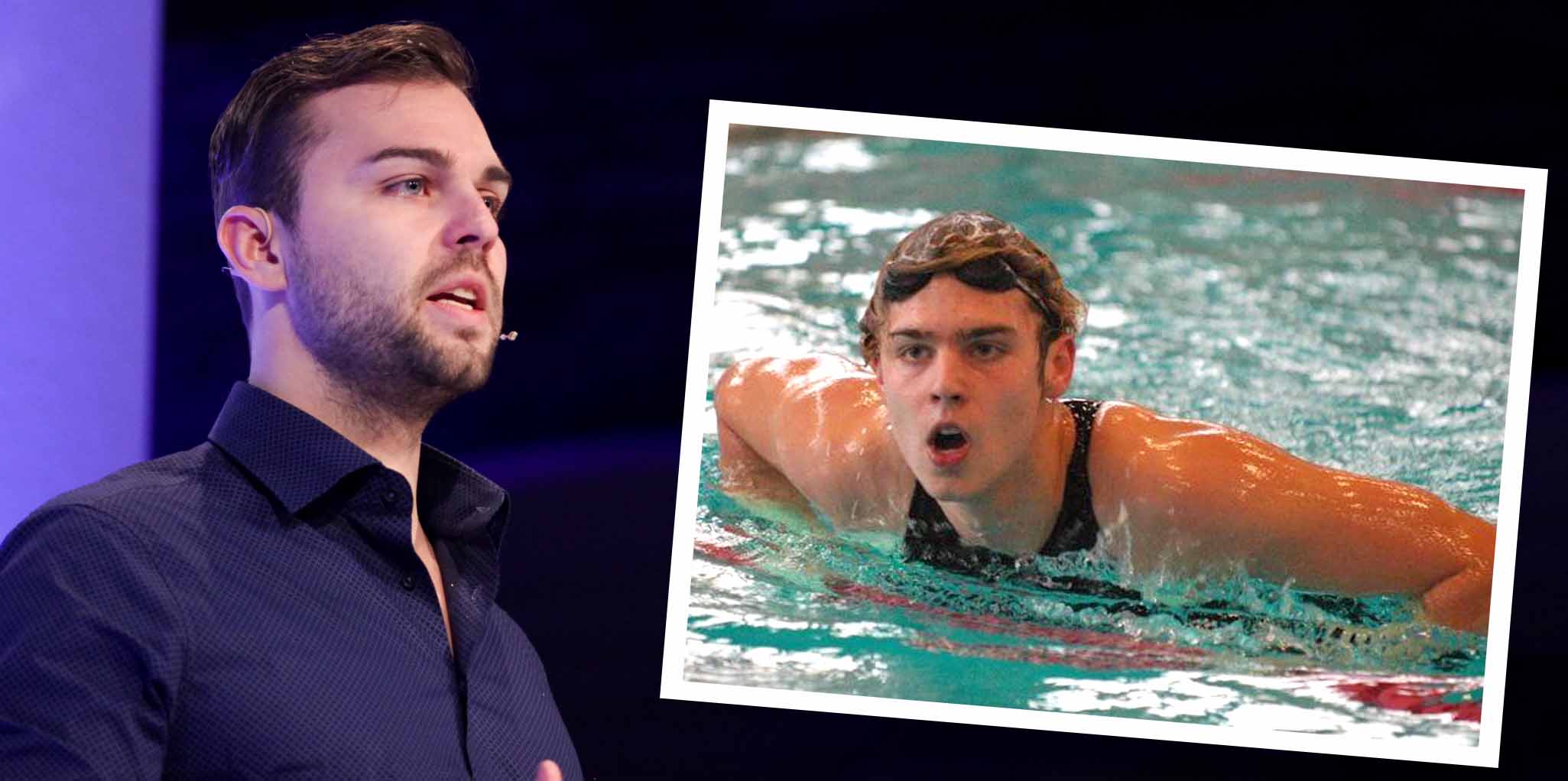Benjamin Bilski is a busy man. His life consists of 17 to 18 hours of work per day, business meetings all around the world and the responsibility of having a company with more than 150 employees. Normally, interviews with him have a five-to-ten-minute slot in his schedule, but today he takes his time. We want to talk to him about something that formed his character like nothing else: swimming.
Some swim enthusiasts in Germany still know his name. Bilski won several medals at German Nationals; in 2006 he even qualified for the European Junior Championships. "I was never a high flyer, but I had a steady development," says the 29-year-old today. When he talks about his swimming days, he makes it sound like his time as an athlete was decades ago. However, his retirement from competitive sports was just a little less than eight years ago – but for him it feels like an eternity.
It takes eight years to form a top swimmer, they say. Eight years, that's two Olympic cycles. But instead of chasing the dream of the rings, Bilski used the time to build a business that is currently taking the financial world by storm – the NAGA Group. "We build technology and platforms to trade stocks and financial products," Bilski says.
He founded his enterprise together with two partners, and in July 2017, the NAGA Group went public, immediately launching the most successful German IPO of the year. Bilski rose to international fame and made it onto the popular Forbes’ 30 under 30 as one of Europe's most influential tech heads. "That was a big surprise, of course. It’s going to stay in my resume forever, but it’s also a great honor for the company because the team mentality plays a big role in our firm", the young entrepreneur says. Today, his company is valued at around $250 million – a number that, in German sports, can only be found in football. In swimming, we can only dream of numbers like that.
"This tough learning process that you go through
as an athlete between the ages of 15 and 19
is perfect for the business world."
The main reason Bilski ended his career early was the lack of opportunity to eventually make a living in his sport. "It was on my mind constantly," he says. After graduating from high school, he had spent a year and a half solely focusing on swimming, but due to an injury he missed the qualification for the 2008 Olympics. At one point he realized, "My classmates from school had started going to college and were about to graduate, and I still had nothing." The problem isn’t just that swimming brings in little to no money – it also costs a lot. "At some point your parents start to ask, 'Don’t you want to start doing something serious?'," he says.
So Bilski decided to go to college and get a degree in economics. He already had a deep sense of entrepreneurship. During his time as an athlete, the avid angler launched a web shop for fishing equipment, which quickly became the largest online shop of its kind in Germany. Later, his way led to programing apps and right into the middle of the financial world. "Sometimes it’s crazy what turns your life takes, but looking back it’s like it all came together perfectly," Bilski says.
Today, he sees his time as a competitive athlete as an important key to his success in the business world. "This tough learning process that you go through as an athlete between the ages of 15 and 19 is perfect for the business world," Bilski says. The short-course specialist, who once had remarkable best times of 1:44.76 in the 200m freestyle and 1:55.96 in the 200m butterfly, compares his daily morning routine of getting up early and going to work to his past days as a swimmer when he had to go to morning practices.
"You learn how to pull yourself together. You learn how to torture yourself. But you also learn to prepare yourself and to become mentally strong," Bilski says. Today, as a company leader, he appreciates such qualities.
"I have always loved swimming and benefited a lot from it.
Now it’s time to give something back."
Backed by his recently achieved business power, the former finalist of European Youth Championships now intends to start his own professional swim team. Four to five athletes would be given the financial security to focus on achieving their peak performance in the pool. "For the team members there would be a real salary," Bilski says. In return, the company would take over the marketing of the athletes and the team in order to generate revenue. "So we would actually invest in people and apply a business-to-sport concept." It's not yet clear when his plans will become reality. The ideas of Bilski, however, already sound quite mature, because even with his long working hours and several new business projects, the flame for the old passion is far from extinguished. "I have always loved swimming and benefited a lot from it,” he says. “Now it’s time to give something back. "

